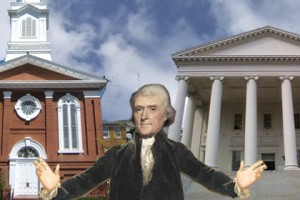
[Photo credit: Smaug.tk]
“Those who belong to Christ Jesus have crucified the flesh with its passions and desires.” (Galatians 5:24)
John Piper:
Picture your flesh—that old ego with the mentality of merit and craving for power and reputation and self-reliance—picture it as a dragon living in some cave of your soul.
Then you hear the gospel,
I will make you mine and take possession of the cave and slay the dragon. Will you yield to my possession? It will mean a whole new way of thinking and feeling and acting.
You say:
But that dragon is me. I will die.
He says,
And you will rise to newness of life, for I will take its plan; I will make my mind and my will and my heart your own.
You say,
What must I do?
He answers,
Trust me and do as I say. As long as you trust me, we cannot lose.
Overcome by the beauty and power of Christ you bow and swear eternal loyalty and trust.
And as you rise, he puts a great sword in your hand and says,
Follow me.
He leads you to the mouth of the cave and says,
Go in, slay the dragon.
But you look at him bewildered,
I cannot. Not without you.
He smiles.
Well said. You learn quickly.
Never forget: my commands for you to do something are never commands to do it alone.
Then you enter the cave together.
A horrible battle follows and you feel Christ’s hand on yours.
At last the dragon lies limp.
You ask,
Is it dead?
His answer is this:
I have come to give you new life. This you received when you yielded to my possession and swore faith and loyalty to me. And now with my sword and my hand you have felled the dragon of the flesh. It is a mortal wound. It will die. That is certain.
But it has not yet bled to death, and it may yet revive with violent convulsions and do much harm.
So you must treat it as dead and seal the cave as a tomb. The Lord of darkness may cause earthquakes in your soul to shake the stones loose, but you build them up again. And have this confidence: with my sword and my hand on yours this dragon’s doom is sure, he is finished, and your new life is secure.
———————
Piper continues:
Christ has taken possession of our soul.
Our old self has been dealt a mortal wound and stripped of its power to have dominion.
The Christian life, the fruit of the Spirit, is a constant reckoning of the flesh as dead (piling stones on its tomb) and a constant relying on the present Spirit of Christ to produce love, joy, and peace within.

 In what theologians refer to as “The Golden Chain of Redemption,” God is revealing to us an unbreakable chain that starts in eternity past, goes through time, and on into eternity future. This chain is forged by God Himself, and has five unbreakable links: God foreknows, predestinates, calls, justifies and glorifies.
In what theologians refer to as “The Golden Chain of Redemption,” God is revealing to us an unbreakable chain that starts in eternity past, goes through time, and on into eternity future. This chain is forged by God Himself, and has five unbreakable links: God foreknows, predestinates, calls, justifies and glorifies. Where does the phrase “a wall of separation between Church and State” come from?
Where does the phrase “a wall of separation between Church and State” come from?